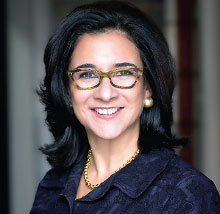FCC Approves 988 as Suicide Prevention, MH Crisis Number
Abstract
The new hotline will be phased in over two years.
Last month the Federal Communications Commission (FCC) unanimously approved 988 as a nationwide, three-digit phone number that people in crisis can call to speak with suicide prevention and mental health crisis counselors. All phone service providers are required to direct all 988 calls to the existing National Suicide Prevention Lifeline (1-800-273-TALK) by July 16, 2022. This includes all telecommunications carriers and interconnected and one-way Voice over Internet Protocol (VoIP) service providers. The National Suicide Prevention Lifeline will remain operational during and after the two-year transition to 988.
“If an individual or a loved one is experiencing intense emotional distress, the last thing we want is the stress of having to remember a long phone number to reach help. [That] can be a barrier to reaching out to someone,” said Assistant Secretary for Mental Health and Substance Use Elinore F. McCance-Katz, M.D., Ph.D., in comments before the vote. “With the implementation [of 988], we anticipate that many more Americans will receive help for suicide prevention, and many more lives will be saved.”

Having an official, federally supported number for mental health crises suggests that stigma surrounding mental health crises is slowly but surely abating. —Maria A. Oquendo, M.D., Ph.D.
“This number should be helpful because, in contrast to existing hotlines, it is brief so even those who are intoxicated or otherwise cognitively impaired can use it more easily,” past APA President Maria A. Oquendo, M.D., Ph.D., told Psychiatric News. Oquendo is also president of the American Foundation for Suicide Prevention and chair of the Department of Psychiatry at the University of Pennsylvania. “As well, the ‘meta-message’ of having an official, federally supported number for mental health crises suggests that stigma is slowly but surely abating and people may be more willing to avail themselves of help.”
In December 2018, APA wrote a letter to the FCC, pointing out that a three-digit number could improve access to care and “reduce the prevalence of psychiatric boarding that is plaguing our emergency departments.”
The letter also emphasized the need for an outreach campaign to educate members of the public about the new number so they understand when to dial it versus 911.
During the transition to 988, Americans who need help should continue to contact the National Suicide Prevention Lifeline by calling 1-800-273-8255 (1-800-273-TALK) and through online chats here. Veterans and service members may reach the Veterans Crisis Line by pressing 1 after dialing, chatting online here, or texting 838255. ■



